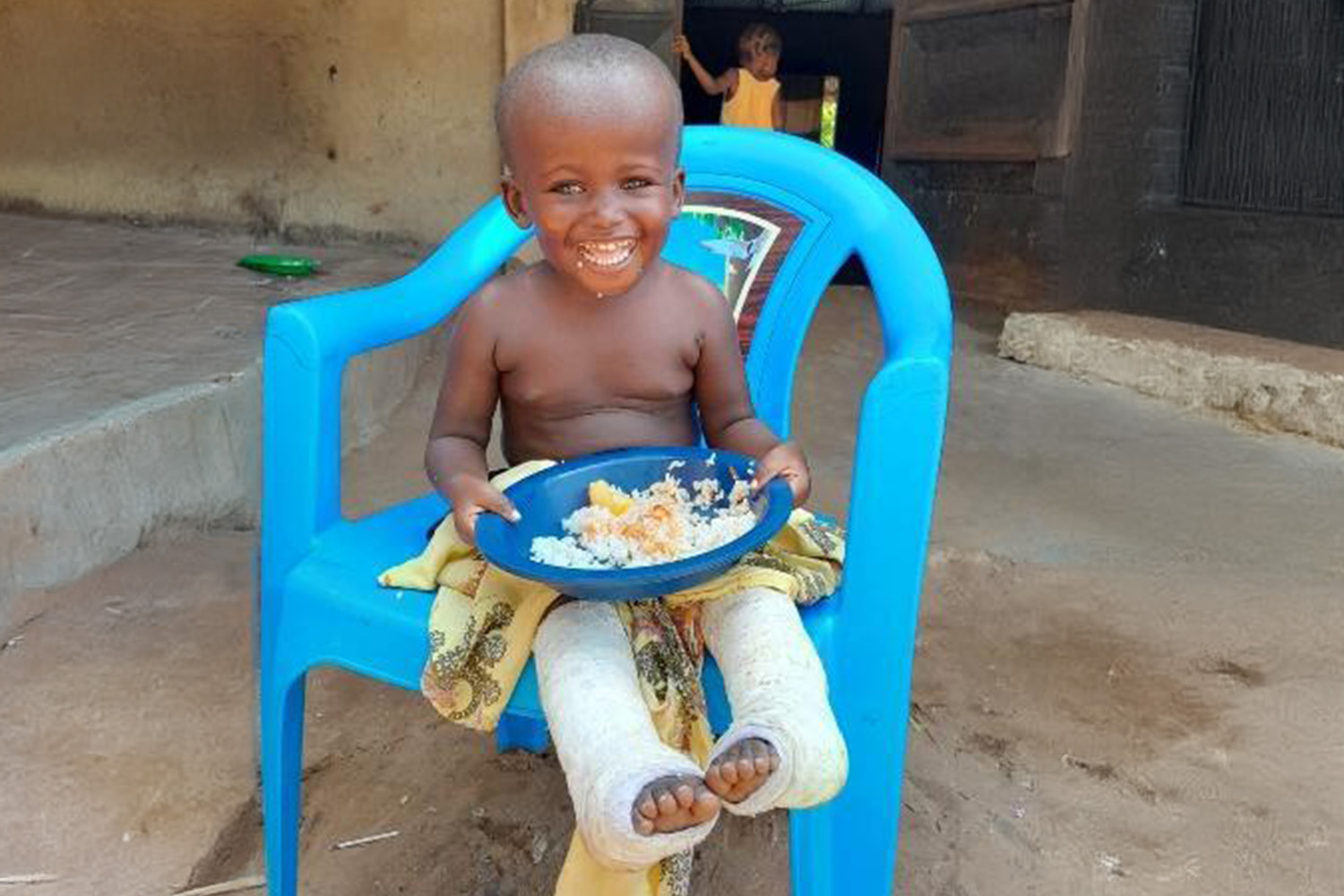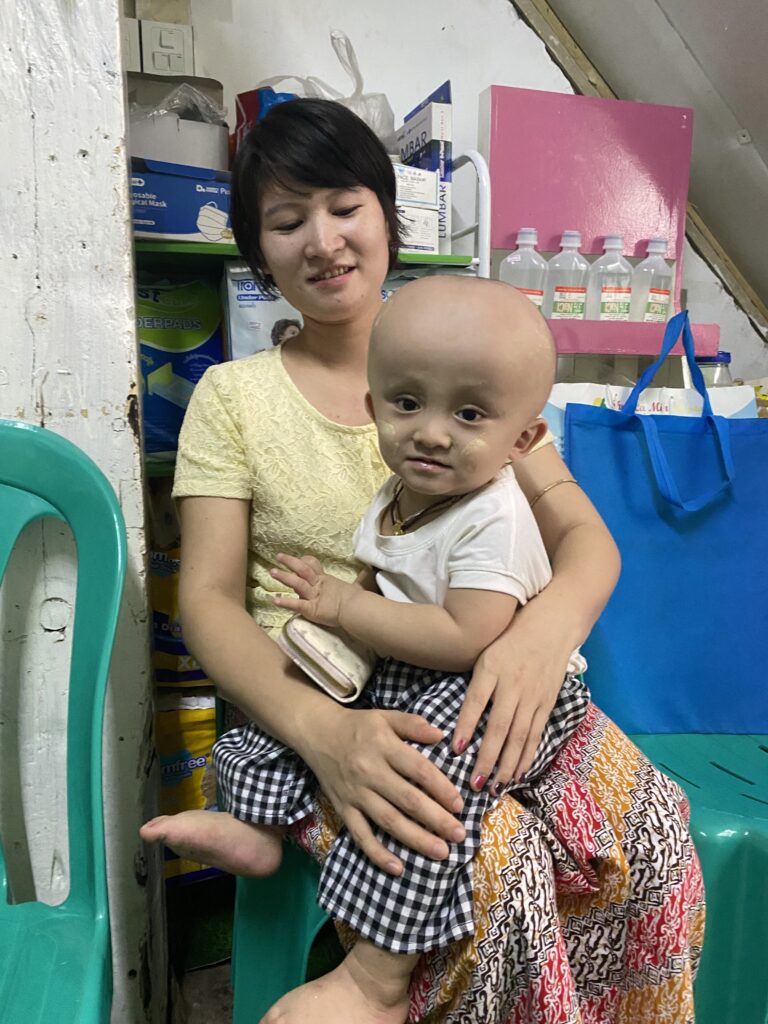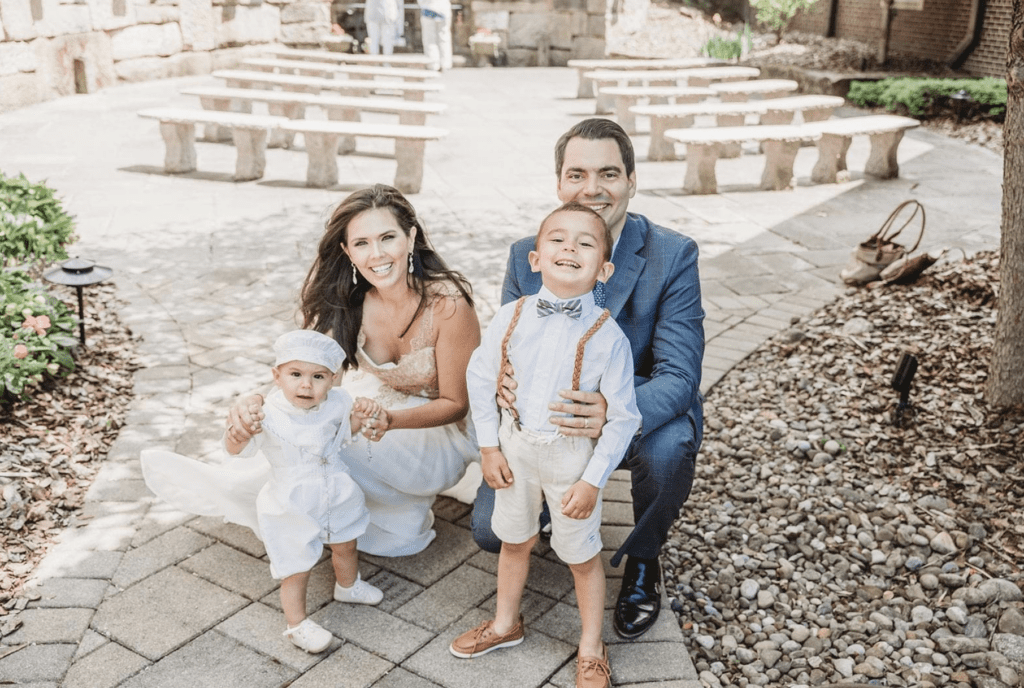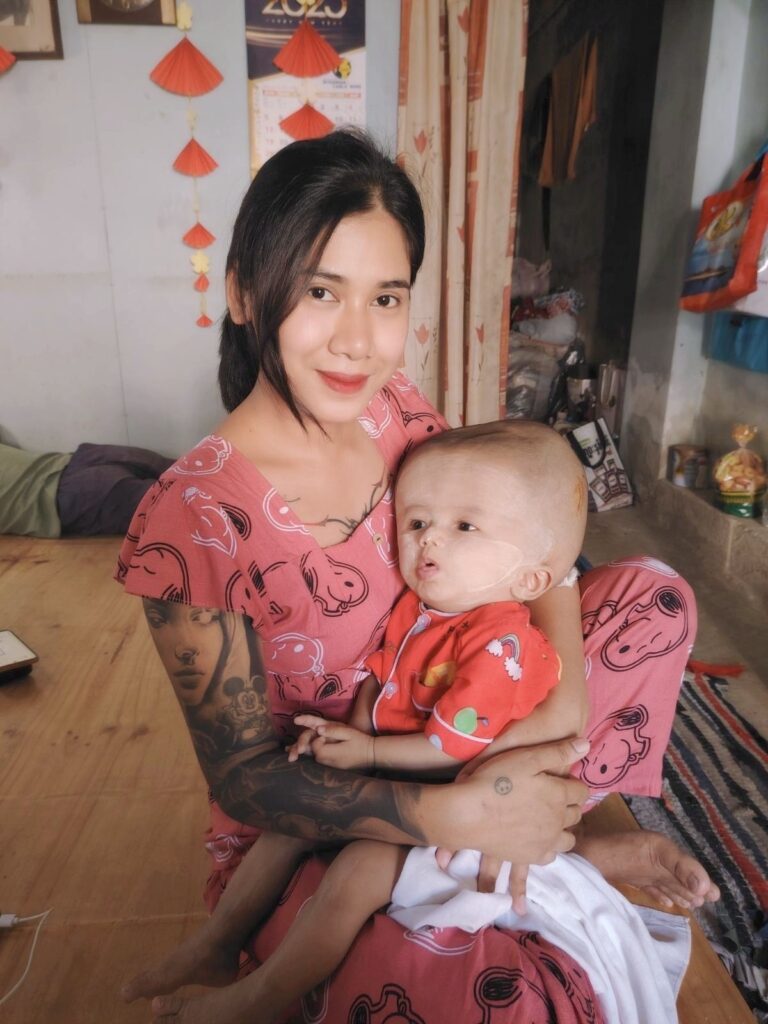February 12, 2024
“My last pregnancy was different,” says Irene, a mother of three in Mombasa, Kenya. “I frequently felt pain around my ribs. When I gave birth to my baby, Himary, the nurses gave her to me and started to explain that she had a serious condition,” she says.
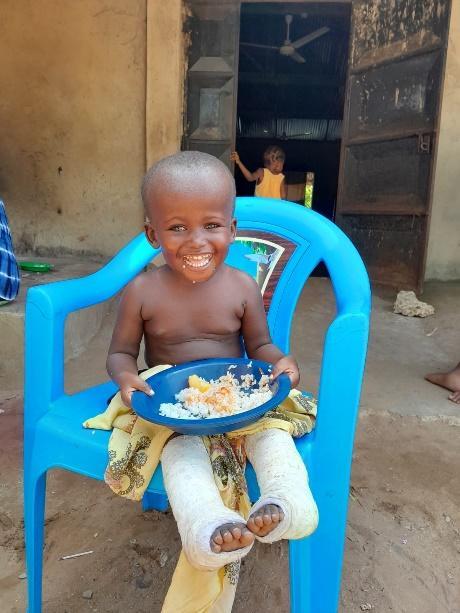
“When I first held her, I could see some bulging on her back, and there was a tuft of hair there, too. That’s when I realized what the nurses were talking about.” Himary was diagnosed with spina bifida.
Unfortunately, some people were scared to be associated with a child with serious issues. “When he saw the baby, Himary’s father would not accept us back. He said that whatever the baby had was from my side of the family and that it was witchcraft, and he didn’t want to be associated with us. I felt awful and slowly slipped into depression,” Irene recalls.
Himary received surgery to close up the bifida at Poetreitz Hospital.
“A few days after the spina bifida surgery,” Irene recounts, “Himary became irritable, and she was crying a lot. Whenever she cried, urine and faeces passed uncontrollably. Then suddenly, her head started swelling. At first, I didn’t notice it until the beanie she always wore didn’t fit her head. Then her head became so heavy she couldn’t hold it up. That’s when I knew that there was something wrong.
“The doctors and nurses from our local hospital referred me to the Coast General Hospital, where Himary could get surgery.”
At Coast General, Himary received life-saving surgery from Dr. Ben Okanga, who had been trained by NeuroKids master trainer, Dr. Ssenyonga in 2023.
The linkage between hydrocephalus and spina bifida
More than 80% of infants with spina bifida develop hydrocephalus as well. This is why NeuroKids also works with local physicians to be on the alert for hydrocephalus when a child is treated for spina bifida.
“When I met the NeuroKids and House of Hope teams,” Irene continues, “they gave me hope. They also introduced me to other mothers with children who have the same condition. I was not alone! I was relieved, and all those negative thoughts about myself and my baby were diluted. I felt whole again.
“Now I continue this journey knowing I am not alone, that I have people beside me who will help me psychologically and socially. The people in my village see my baby now, and they are in awe because they thought that she would not be able to grow up. Himary now talks and walks with the aid of a two-wheel walker, and I can boldly say that she is a very smart girl,” Irene says happily.
NeuroKids is committed to its mission of helping children like Himary, who are affected by spina bifida and hydrocephalus live longer and better lives through innovative treatments, comprehensive training programs, and unwavering support.


